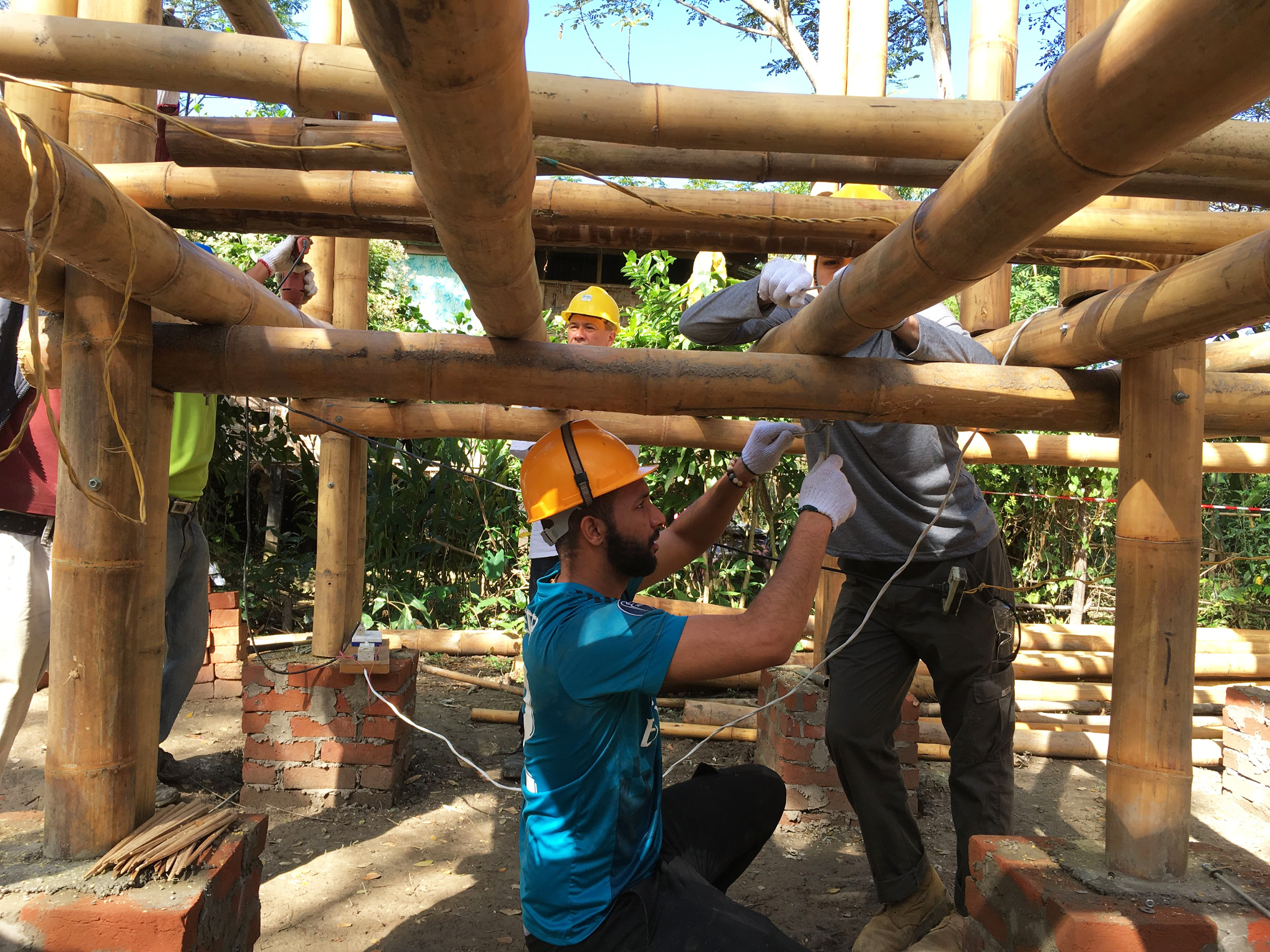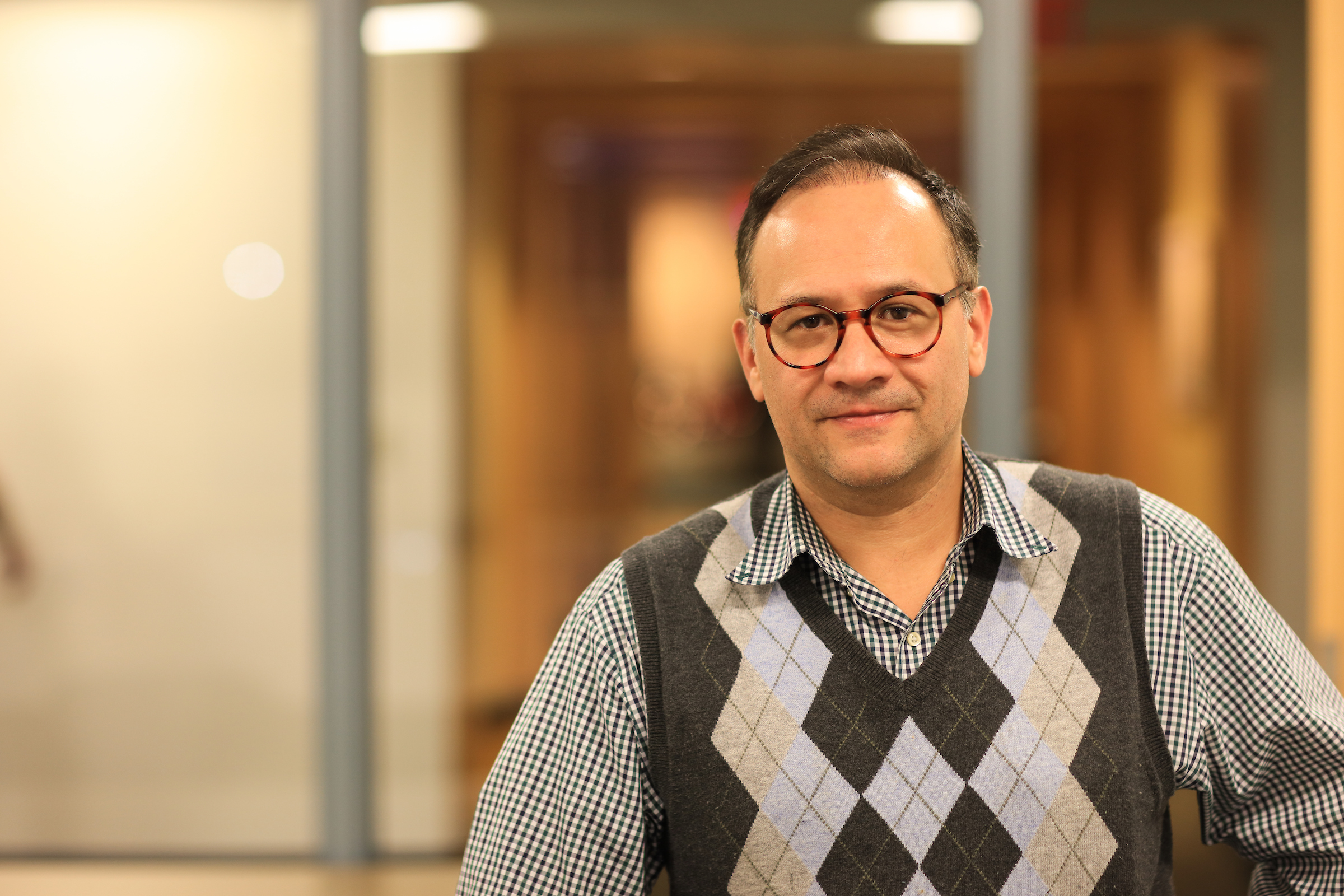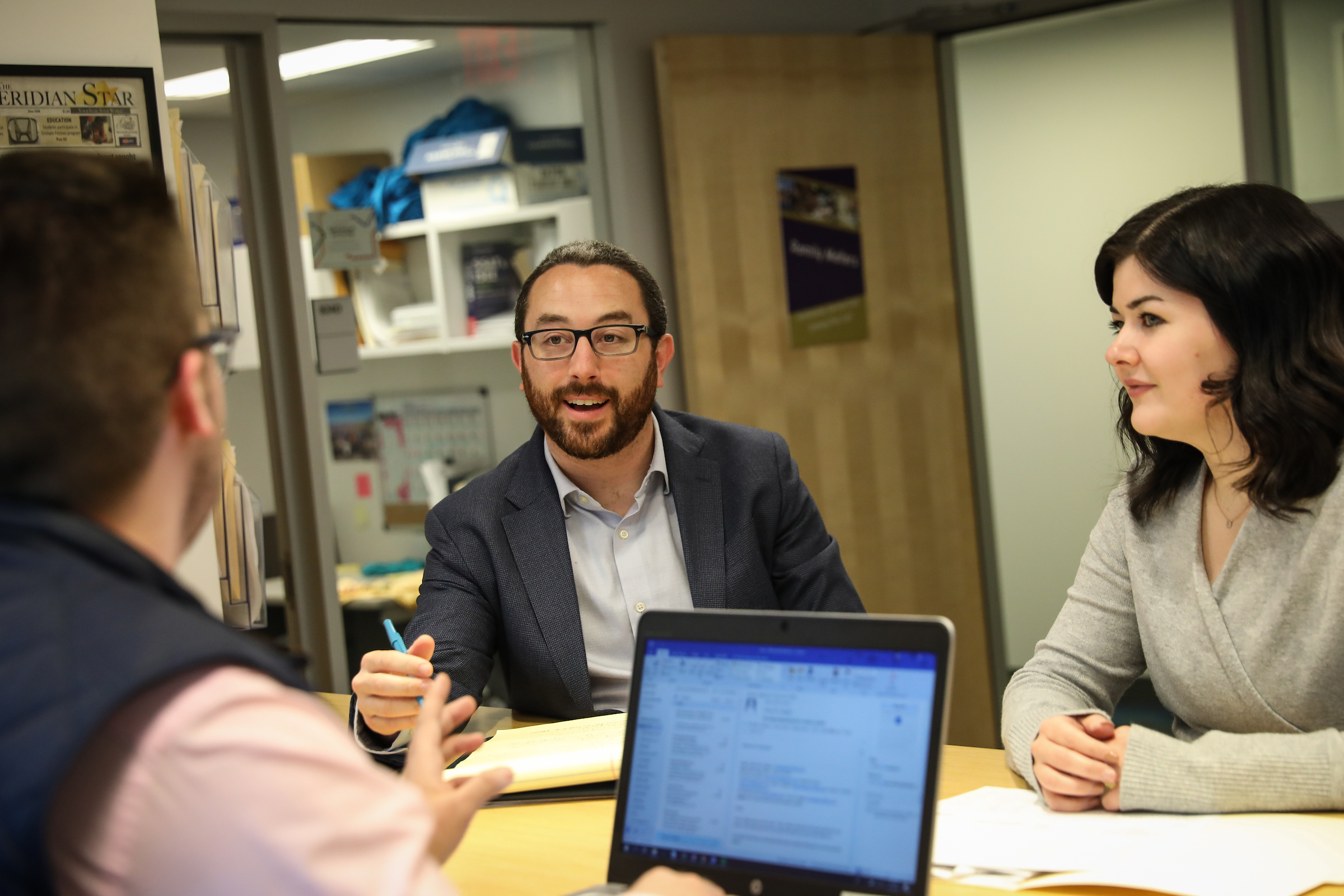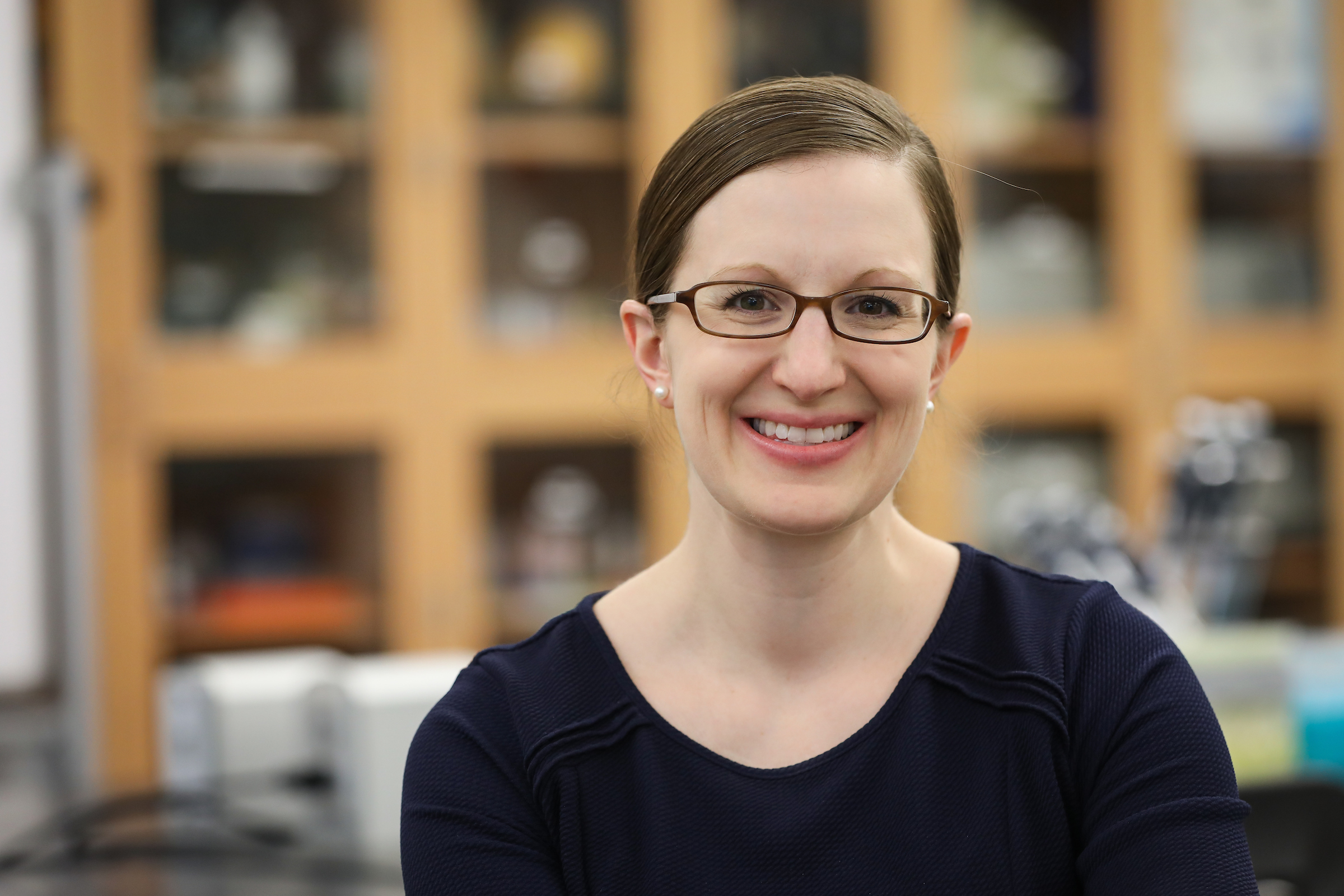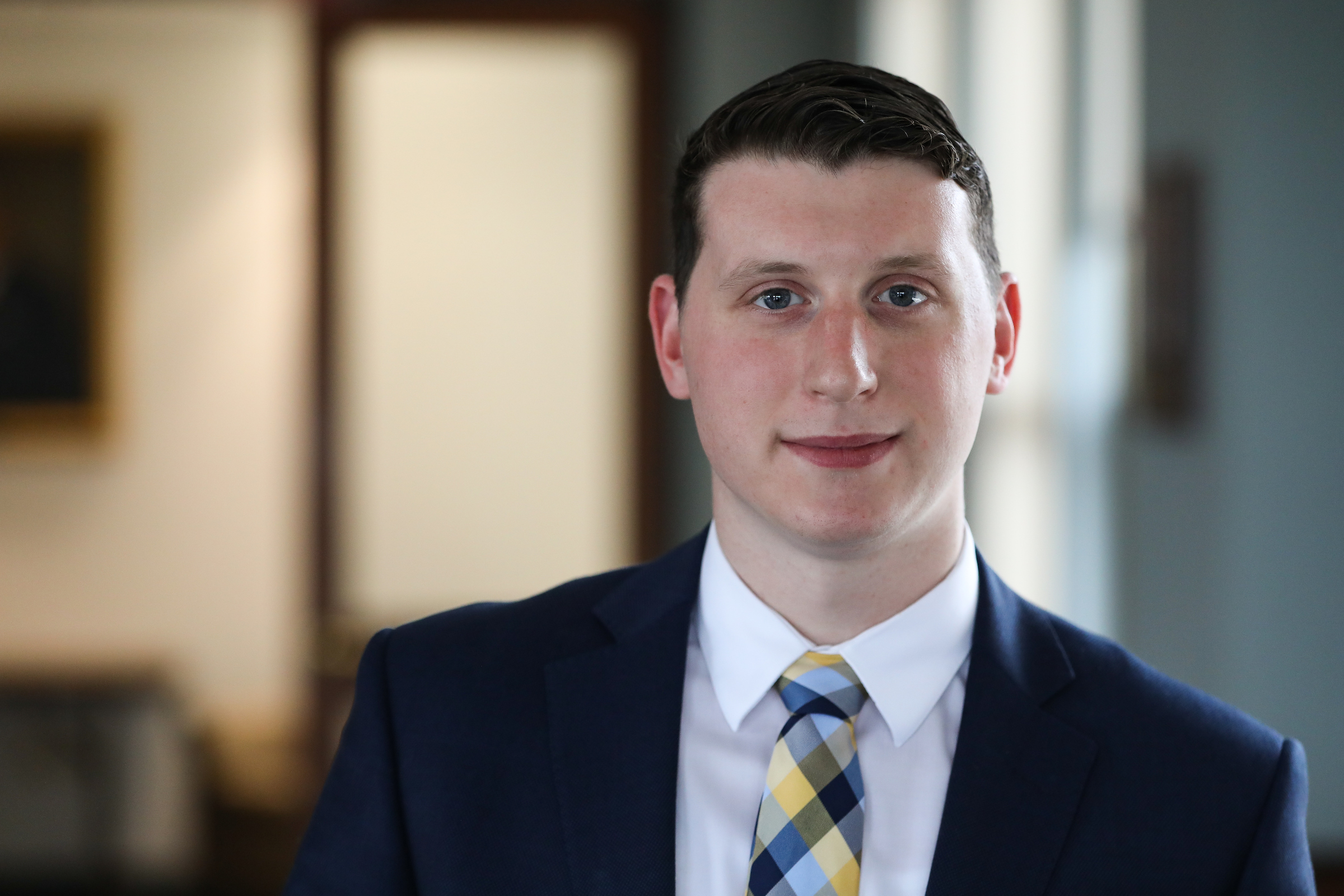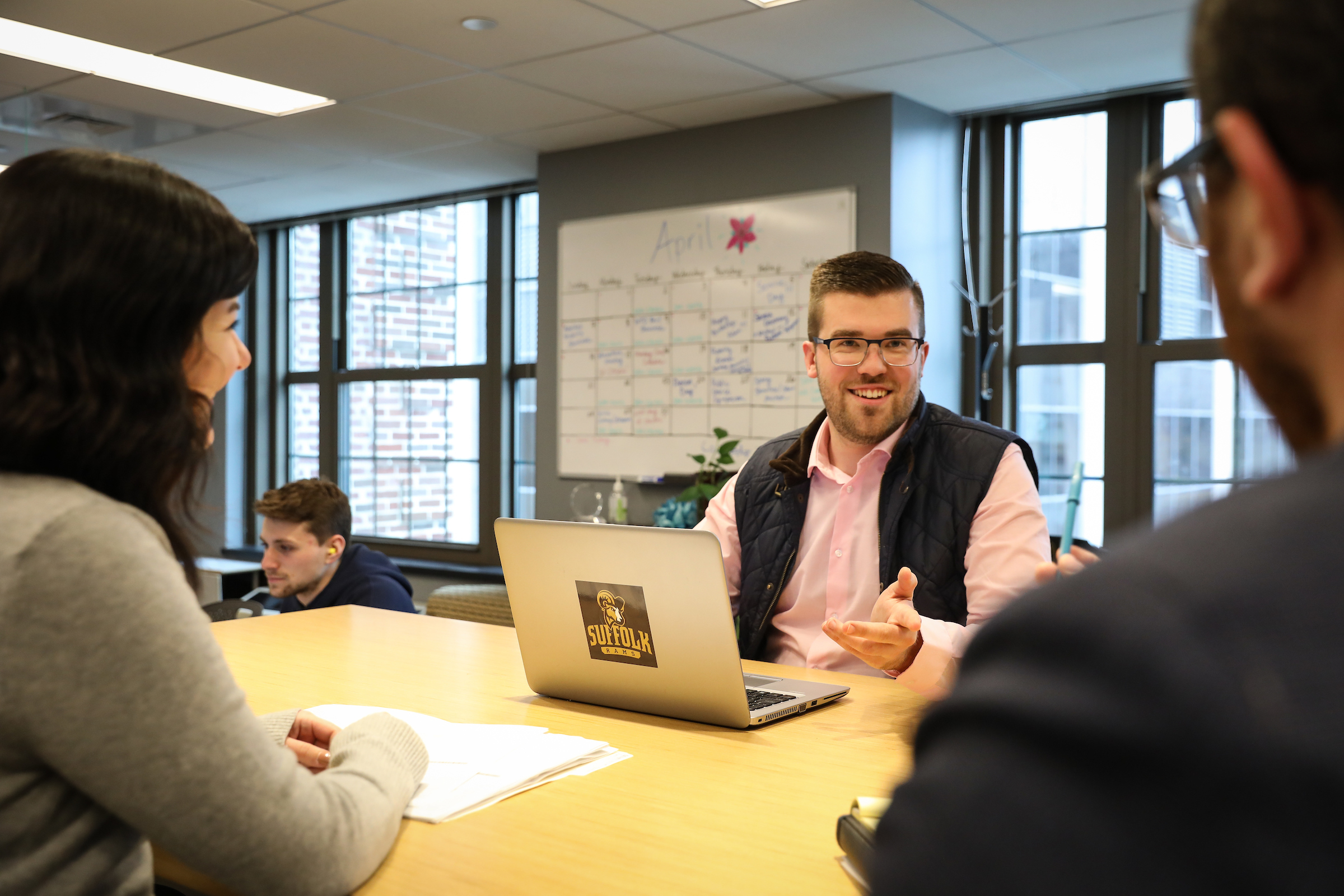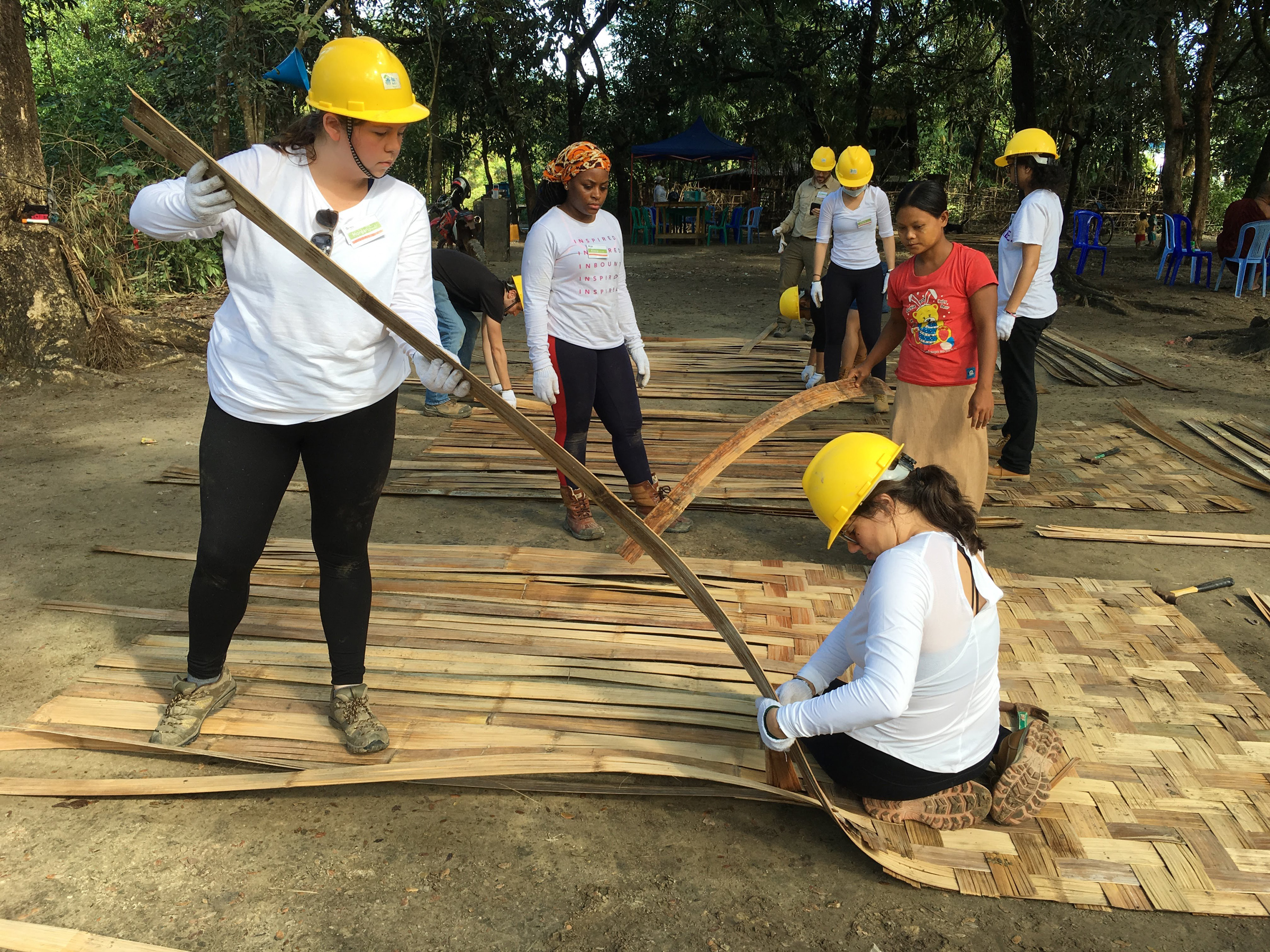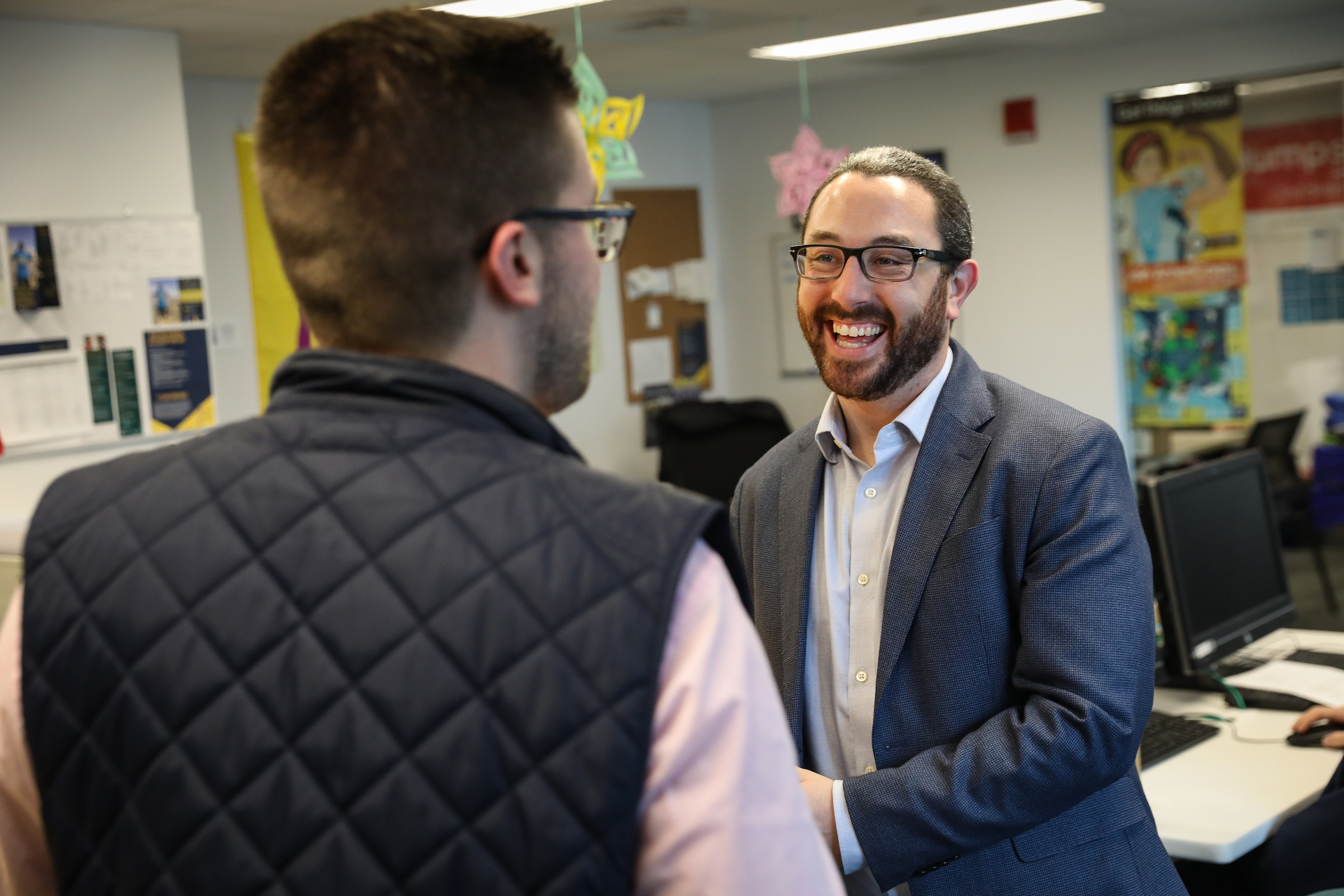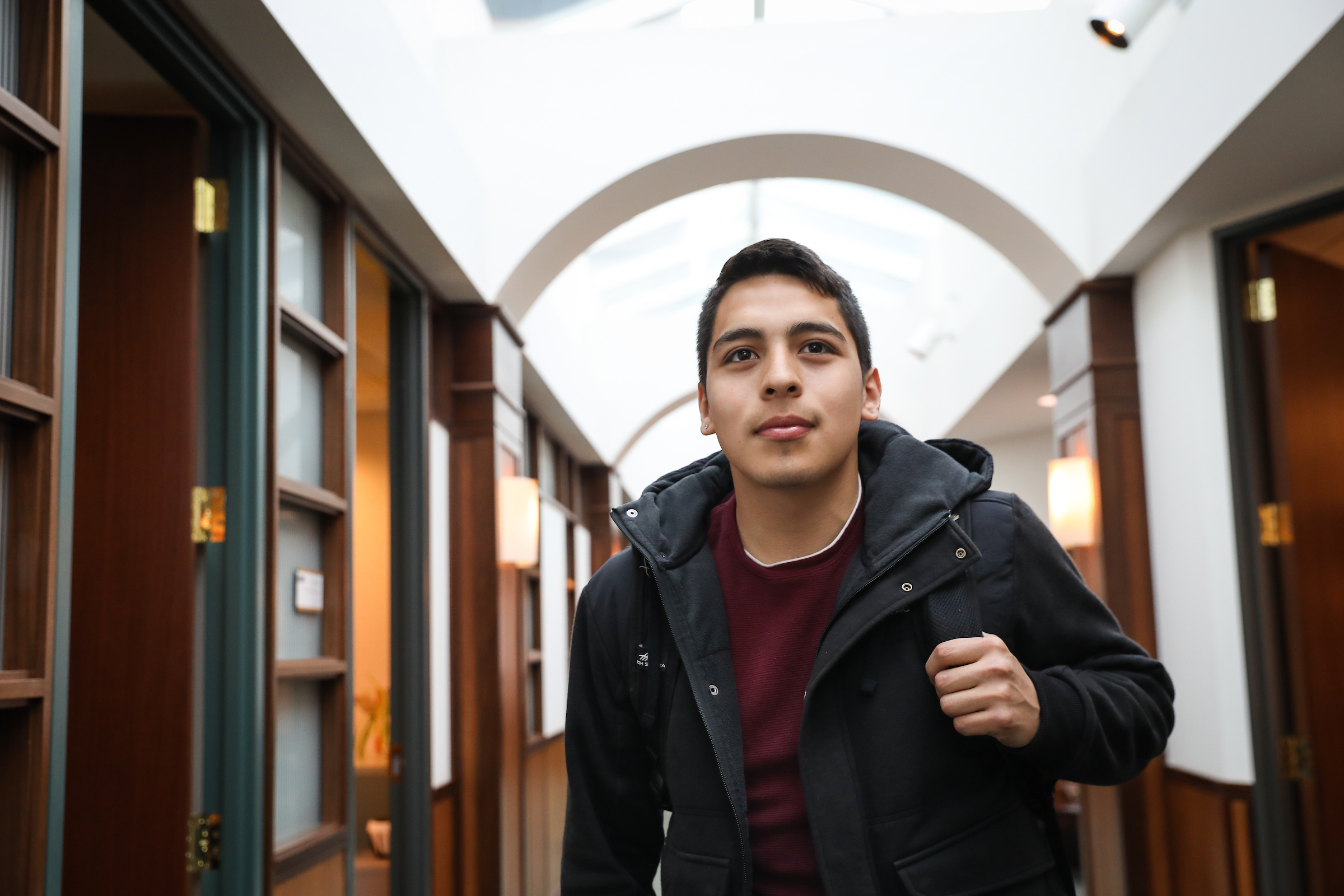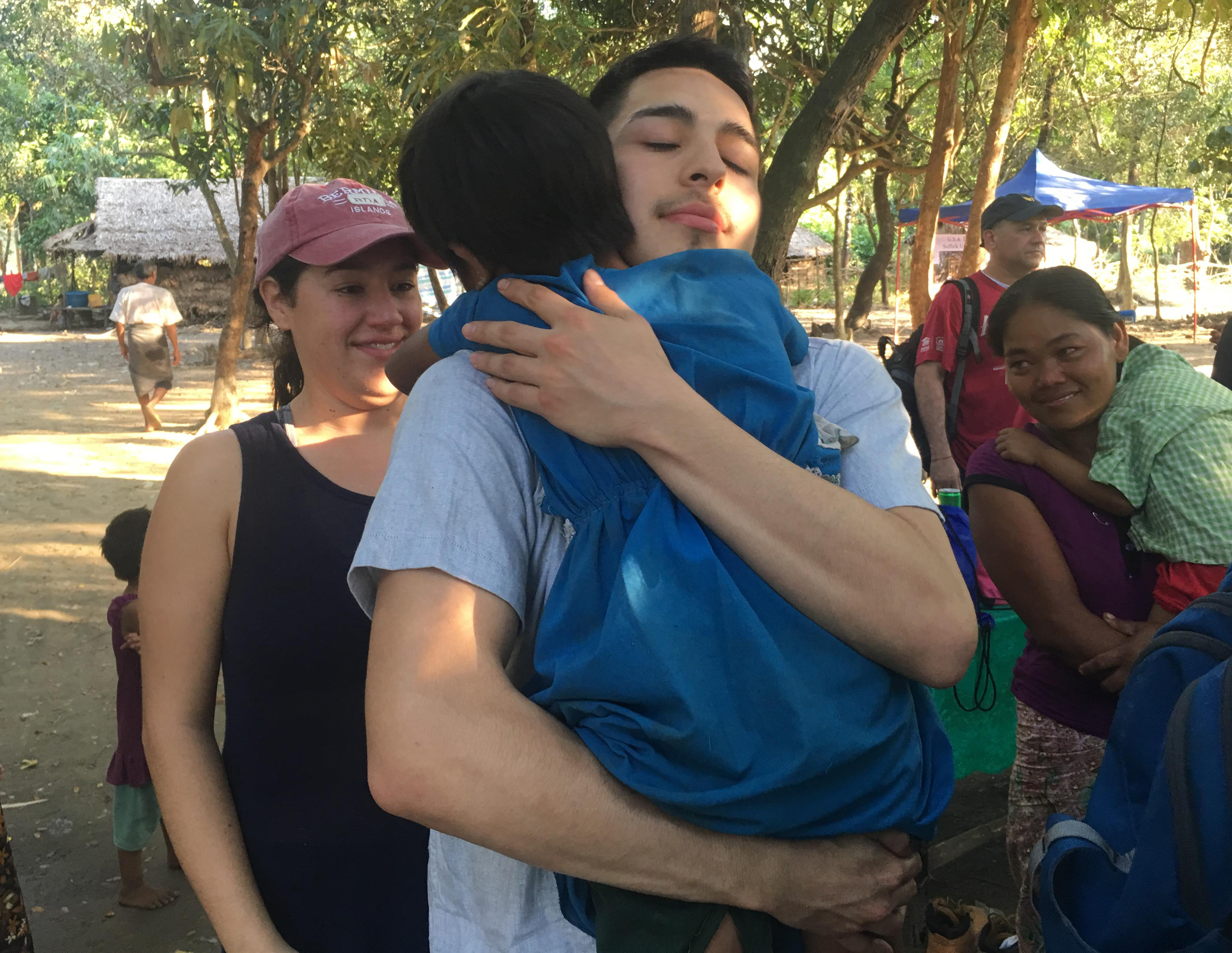Teaming Up for Local Activism
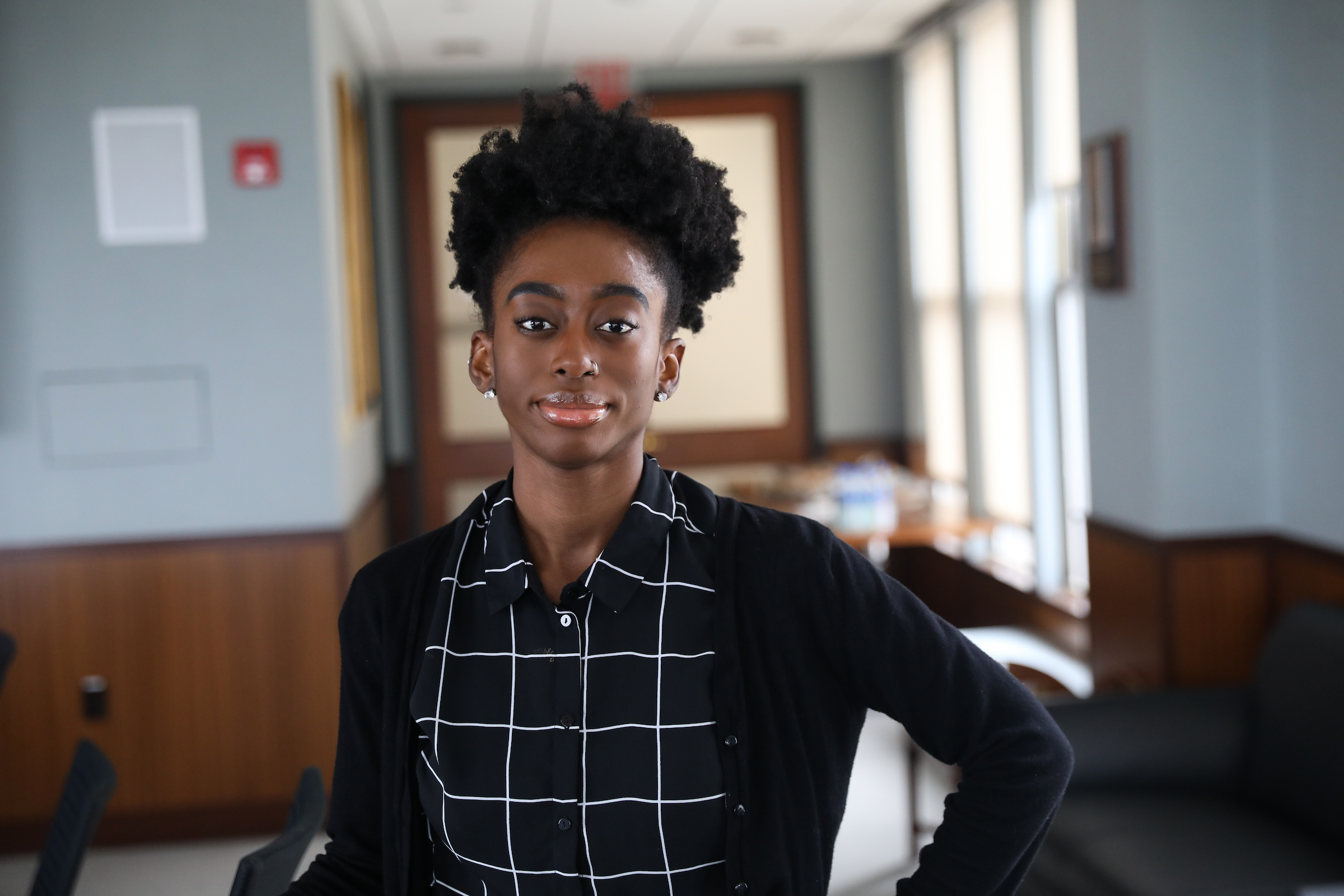
One of the most deeply ingrained community service opportunities at Suffolk is the AWB program’s close cousin: Alternative Spring Break (ASB). “It’s kind of an institution within the institution,” says Westbrook. “I’ve heard students say that you haven’t really done Suffolk until you’ve done an ASB program.”
Alternative Spring Break experiences are organized around social justice themes. Students in the program meet regularly for several weeks to team-build, learn about a particular issue through the ASB lens, and prepare to travel with their team, which usually consists of about a dozen students. Then, for about a week in March, these teams visit sites across the United States, from Denver, Colorado, to South Bend, Indiana; Meridian, Mississippi; Washington, D.C., and beyond.
If one student personifies the spirit of ASB, that student would be Abby Shobajo, BFA ’19.
“She’s done every type of ASB trip,” Dennis Harkins says of her. “Poverty, LGBTQ+, racial justice. She’s been a service scholar here in the CCE; she’s touched every program that we offer. I’m sure part of the reason she wanted to create something new was because she’d had those experiences already.”
Abby and her classmate Adriana Taplin helped design an entirely new trip. Centered around racial justice, it took students to organizations in and around Baltimore, Washington, D.C., and Virginia in spring 2019.
“There’s so many different topics within social justice, and race is really important to me,” says Abby. “I felt like it was important to other people at Suffolk who felt unheard or marginalized.”
Her motivation crystallized into firm plans over the course of several conversations with Westbrook and Harkins, who helped her develop the idea into an actual itinerary. When considering the week’s activities, Adriana and Abby focused on the intersection of race and other social justice topics, examining how race affects reproductive rights or immigration, for example.
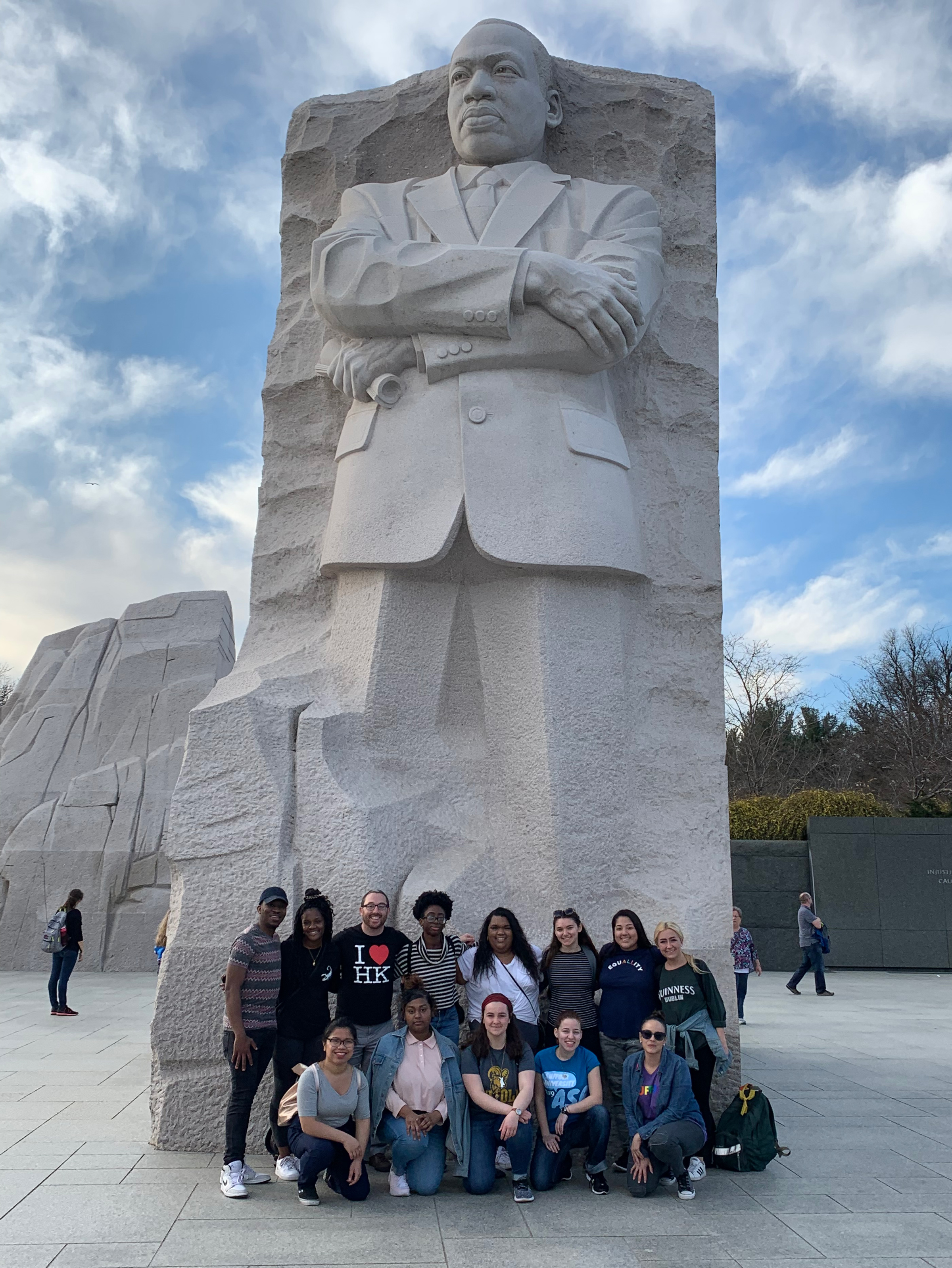
This new trip began in Washington with a visit to Asian-American Youth Leadership Empowerment and Development, a nonprofit group offering after-school, summer, and mentoring programs to underserved and low-income Asian-American youth in the area. The group connected with staff members to learn about the organization’s work and how it benefits the community it serves. Abby and her student teammates gained immediate insight into facets of racial stereotyping that are sometimes misunderstood.
“We talked about the model minority myth,” says Abby, “a stereotype that Asians are more likely to follow rules, and that they’re what other people of color should aspire to be. It was interesting because I feel like Asian Americans get left out of the conversation about race a lot.”
Although this first visit involved no direct service to a community, it was still valuable for Abby because it helped to build understanding in a real-world context, outside the classroom.
“I think people get very wrapped up in the idea that they have to be going to the soup kitchen or giving money every so often,” she says. “But you should just do what you can, because that’s still impactful.”
The ASB group got hands-on in Washington, too. At Thrive DC, a homeless assistance organization, the team sorted donations and helped with administrative tasks. They also assembled free birth control kits at Planned Parenthood.
Perhaps the most powerful moment for Abby was their visit to Charlottesville, Virginia, where a rally by white nationalists led to counter-protests, violence, and death in August 2017. The team took a walking tour and discussed the rally and its aftereffects with a University of Virginia professor, and met with the university’s general counsel, whose office produced a report on the racial tensions and protests that shook the UVA campus.
“After that,” Abby says, “we met Leslie Scott-Jones, a local activist who’s involved with Black Lives Matter and was around during the attacks. She gave us her insight on how we as activists can get involved and how to take care of yourself. That day was a day I can’t forget.”
